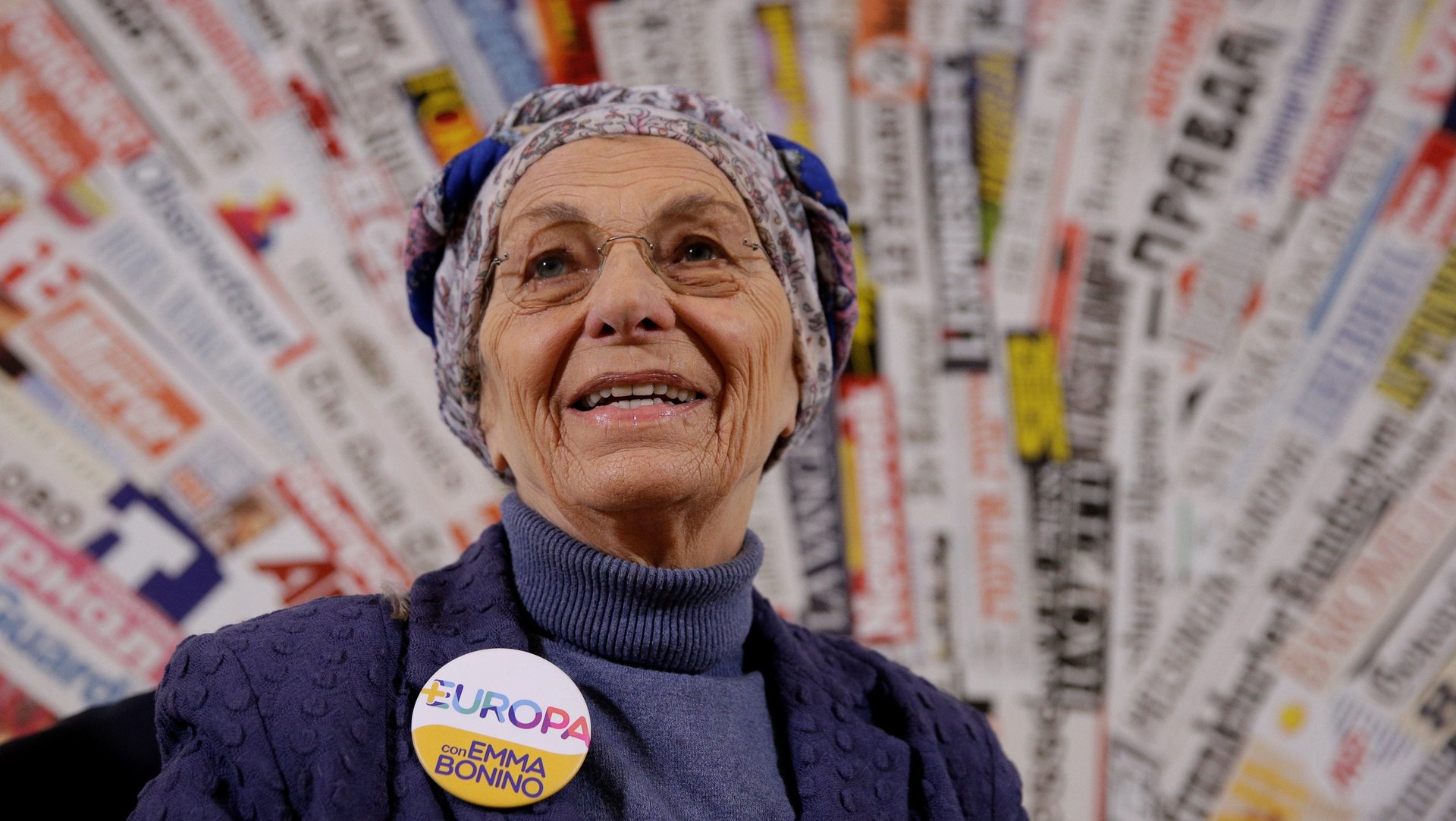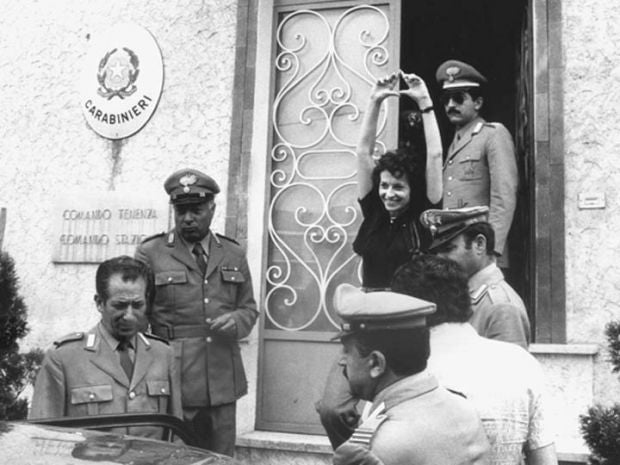There are two rays of hope for progressives in Italy’s election
John Oliver says he could be Italy’s next prime minister, and he’s probably right.


John Oliver says he could be Italy’s next prime minister, and he’s probably right.
“I make just as good a leader as many of your political figures,” he said on Sunday (Feb. 25) at the end of a Last Week Tonight‘s segment on Italian elections. As a person who has not yet been banned from public office, and does not believe that AIDS is a hoax or that immigration is a form of ethnic cleansing, the British comedian is indeed more qualified than several men leading Italian polls.
To the despair of many Italian voters, conspiracy theories, racism, fascism, and blunt misogyny have become the currency of this election. On March 4, Silvio Berlusconi’s coalition is set to take the relative majority and the populist Five Star Movement to win the most votes of any single party. But that’s not the whole picture.
Progressive Italians have two reasons for hope, and both are female.
Emma Bonino and Laura Boldrini are both prominent figures in the upcoming elections. Bonino, a former minister of foreign affairs, heads the party +Europa (literally, more Europe). Boldrini, the highest ranking female politician in Italy as president of the House, is a leading candidate of social-democratic party Liberi e Uguali (Free and Equal). The two have different political focuses: +Europa prioritizes civil rights, while Liberi e Uguali prioritizes environmental and socialist goals. But the two politicians share qualities that could help ordinary Italians restore their faith in politics, and in the country’s future.
Bonino will likely join a Democratic Party-led coalition (her party is polling under the minimum 3%). Boldrini is running for a seat in parliament (her party is polling around 5.6%). Although unlikely, if a center-left majority won the general election, both could end up in major cabinet positions.
They defend the civil rights of women
In a country where even moderate Italian politicians hesitate to support gender equality, Bonino and Boldrini are outspoken feminists.

Bonino began her political and activist career in the 1970s campaigning for abortion rights. In 1975, she turned herself in, having undergone an illegal abortion as well as accompanying women to have abortions. She spent three weeks in jail, was part of several hunger strikes, and was ultimately instrumental in the success of a 1978 referendum that legalized abortion. During Berlusconi’s premiership (link in Italian), Bonino warned against the price Italian women would pay for a sexist prime minister.
Today, she maintains a strongly feminist approach to politics, insisting on practical power rather than adoration. Although she is the second-most popular leader in Italy after prime minister Paolo Gentiloni, her motto is “Love me less, vote for me more.” “You can’t be liked by everyone and no matter what. For me it’s important to say what I really think,” she says.
Boldrini has not been in the limelight as long as Bonino: After a career as a journalist and then with the UN, she was voted into office in 2013. “Feminism is the word of the year [2017] in the US, when is it going to be in Italy, too?” she said when announcing her candidacy.
As president of the house, Boldrini has pushed to raise awareness of violence against women and advocated for cultural and legal change. Infamously, she requested that people use the feminine gender of professional nouns (often default male in Italian) to address female House employees. Italians responded with fury—including the women themselves, who found the feminine versions of their titles diminishing.
They’re unwavering on Europe and migration
Most parties running in next week’s election have adopted messages with anti-immigrant and anti-European sentiments. Even the leaders of centrist parties, such as the Democratic Party, struggle to take a decisive stand against them.
Bonino is respected among Italians because of her longtime coherence in a landscape where politicians routinely change allegiances. While recognizing that immigration is a tricky issue for Italy, she has offered a non-xenophobic solution, focusing on how to use the the untapped potential of immigrants rather than shut them out. And while frank about the European Union’s limits, Bonino has dared to call for more Europe, not less.
Boldrini, too, has stuck to a platform that opens up to Europe. In her time as president of the House, she has also consistently battled to discourage fascism by getting rid of apologist memorials, and promoting tolerance towards migrants and refugees.

A quick Facebook search for Boldrini’s name offers the sense of the outright hostility she faces: The first result calls her “a shit,” and suggested searches have her decapitated, or her throat cut. Nevertheless she doesn’t show much fear, and says she’s seen worse. “The ones that hate migrants and the ones that hate women in positions of power—it’s the same cultural framework,” she told BuzzFeed in a recent profile.
They actually know what they are doing
Boldrini and Bonino are experienced political operators, in a climate of distrust towards career politicians. Somewhat unusually for Italian politicians, the pair speak perfect English.
Bonino has held high profile positions in the Italian government, and was a member of the European Parliament and European commissioner for years. Boldrini spent years working for the United Nations High Commission on Refugees, which gives her a deep understanding of migration and refugee flows—the hottest topics in the current election.
Perhaps most importantly, at a moment when all political messages seem to stoke fear, both promote a fundamentally proactive, optimistic vision of the future of Italy: A country that moves forward, that embraces change. The kind of country that votes for female leaders.